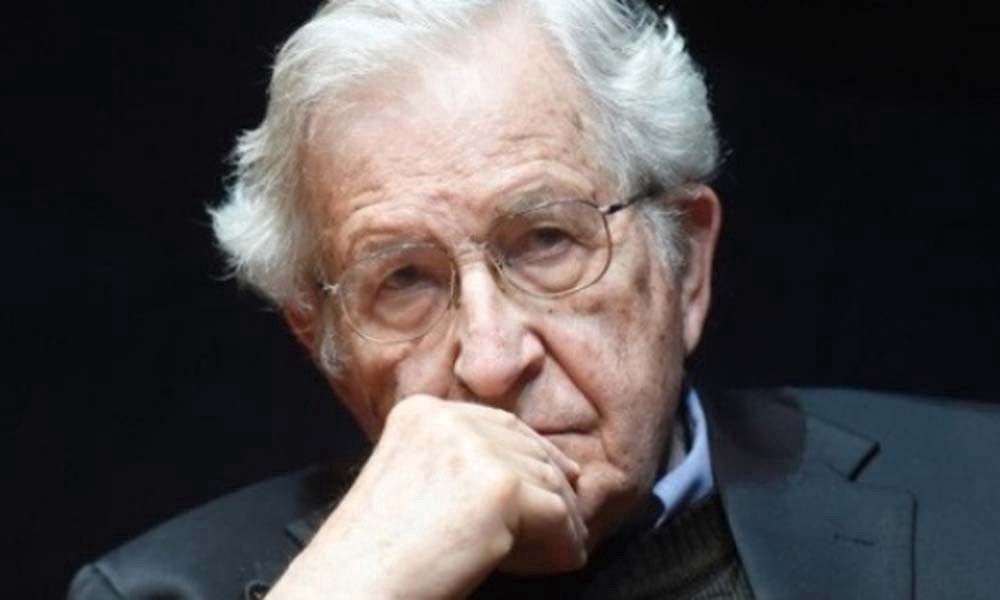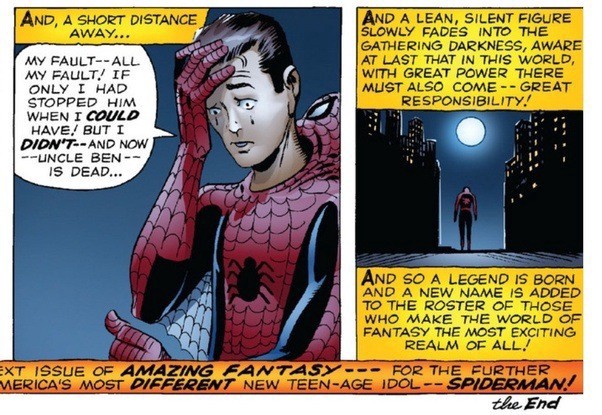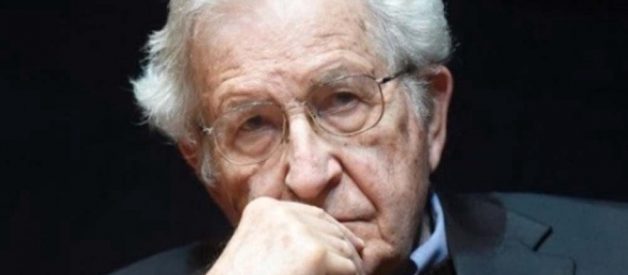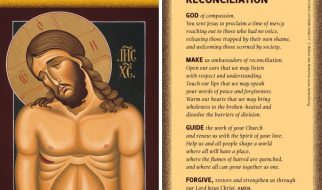
Stan Lee (December 28, 1922? November 12, 2018) was an American writer. In partnership with Jack Kirby, Steve Ditko and others, he introduced complex characters and deeper moral plots into the world of superhero comics.Through comics and also cinema, their stories reached millions and millions of people around the world.One of Lee?s most notorious creations is Peter Parker, the young man who becomes the superhero Spider-Man. During the character?s first appearances, one of the comics brought the phrase ?A great power must be accompanied by ? a great responsibility!?.In a later version, the phrase ?Great powers bring great responsibilities? is said by Peter?s foster father and uncle, ?Uncle Ben?, in the form of an advice or warning.Ignoring what would be the last words he would hear from his uncle, Peter decides to employ his new superpowers to win money in a wrestling tournament. He wins the fight, but ends up being deceived by the promoter of the event. When a thief steals the prosecutor?s money, Peter takes revenge by omission: he chooses to let the thief escape.He later learns that his uncle had been shot to death. He starts looking for the killer. When he finally finds him, the hero-in-the-making finds out that it was the same thief that he had let go. The fact naturally awakens a heavy sense of guilt, but also an acute sense of responsibility and heroism.

The use of this quote by the U.S. Supreme Court (a curious decision)
In Kimble v. Marvel, the Marvel / Disney company had purchased a patent for an invention that allowed the Spider-Man toy to shoot webs, and pledged to pay royalties to the inventor. When the patent expired and entered into public domain, the company stopped paying him. The inventor claimed that there was no clause in the contract that authorized the end of payments under this justification. The Supreme Court was called on to decide whether the company still had an obligation to pay the royalties in question.The majority decision was in favor of Marvel. The Judge responsible for the prevailing opinion quoted the phrase ?A great power must be accompanied by ? a great responsibility!? on a specific point, relating to an overruling request in relation to a previous precedent (under the terms of the decision, the great power of overruling must be exercised sparingly).
Much older references
The same message contained in the forceful Spider-Man quote can be found in much older references, through varied linguistic formulation. See, for instance:
- The Bible: ?To Whom Much is Given, Much Will Be Required? (Luke 12:48).- The French National Convention on May 8, 1793: ?a great responsibility is the inseparable continuation of a great power.?- A speech made by William Lamb in the British Parliament in 1817: ?the possession of great power necessarily implies great responsibility.?- A speech by then Under-Secretary of the British Colonial Commissariat, Winston Churchill, in 1906: ?Where there is great power there is great responsibility, where there is less power there is less responsibility, and where there is no power there can, I think, be no responsibility.?
?Whoever decides to use the power or privilege one may have, big or small, for the sake of his fellow men, for the sake of promoting something good in the world; whoever behaves not for the reward, but due to a sense of duty ? those are, by definition, the true heroes.?
Chomsky: more privilege means more responsibility
Noam Chomsky (1928-) is an American linguist, cognitive scientist and activist. Professor Emeritus of thenotable MIT (Massachusetts Institute of Technology), he was considered by the New York Times as ?the most important intellectual alive?.
In addition to being born in the United States during the 1920s, Chomsky has in common with Stan Lee a similar concern with the idea of responsibility. His reasoning on the subject is clear:
?The more privilege you have, the more opportunity you have. The more opportunity you have, the more responsibility you have.?
What counts as ?privilege? though? In short, everything that only a few people have access to.In an old text published in 1967, for instance, Chomsky talks about the responsibility that intellectuals have to act on behalf of people, given that they had privileges such as a job that allows them free time and an advanced educational training that allows them to identify the truth and the facts about how the world works and what can be done to improve it.
Whoever decides to use the power or privilege one may have, big or small, for the sake of his fellow men, for the sake of promoting something good in the world; whoever behaves not for the reward, but due to a sense of duty ? those are, by definition, the true heroes.


